31 Nights / 32 Days
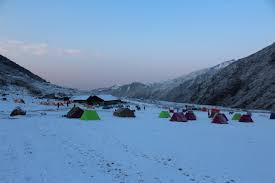
Home to more than 200 tribes, Northeast India is definitely one of the most culturally diverse places on the planet. The tribes here trace their ancestry to faraway lands in Mongolia and Southeast Asia, speak hundreds of different languages, and live in varied landscapes ranging from very fertile plains to the pristine forested mountains of the eastern Himalaya. In simpler words – a tropical paradise!
Due to the difficult terrain of the region, the tribes of the region have till the end of the 20th century been cut-off from the outside world. This has led to a marvelous preservation of both cultures and biodiversity, and a close mutually benefiting relationship between humans and nature of the region. Unarguably, most people of the region survive on the forest and harbor excellent skills when it comes to agriculture, tribal textiles, wood, cane and bamboo craft, traditional medicine and numerous other sustainable methods of livelihood.
In this grand tour of Northeast India, you will travel through the states of Assam, Arunachal Pradesh, Meghalaya and Nagaland, visiting various landscapes inhabited by some of the fascinating tribes of the region. Despite the lack of proper infrastructure in many places, the highlight of the tour will be your interaction with the host communities, learning and observing their simple methods of life and witnessing a lifestyle that can seldom be found in today’s rapidly changing outside world. In the process, by visiting these areas you would also be giving back to the communities and thus partake in ethical travel.
Starting from Meghalaya, you will visit Shillong, a charming hill-station with rich colonial heritage and bustling with stylish Khasi men and women. In the village of Nongriat, located at the bottom of a valley, protected by refreshing lush forests and decorated by cascading waterfalls, you will get a chance to observe the rural life of the Khasis. Educated and smart, the people of the village are great enthusiasts when it comes to sustainable living. They genuinely care a lot about nature and live a life almost independent from modern produces, depending entirely on the forest. Your stay will be in a small cozy guesthouse with minimal facilities, run by the villagers, the benefits from which goes in maintaining the village’s cleanliness and the school.
In Assam, you will visit Majuli, a large island which sits right in the lapse of the peaceful waters of the mighty Brahmaputra River. A hotbed of ancient Assamese culture, the island is home to numerous medieval monasteries where monks young and old learn a unique form of arts, music, drama, dance and Neo-Vaishnavite philosophy. The island is also home to other Assamese tribes such as Mishings, Deoris and Kacharis. Other than the monasteries, you can spend time visiting these villages by going on peaceful bicycle rides or walks across the serene countryside of the island. Good bird diversity can also be found in the island, especially in the winter months when migratory species reside. Your stay in the island will be in tribal styled cottages which will have basic amenities in tune with the local way of living.
In the mountains of Arunachal Pradesh, blessed with bountiful rain and tropical forests, you will cover the entire tribal belt of the state, starting from the central regions which are inhabited by followers of Donyi-Polo; worshipers of Sun & Moon, to the more remote eastern regions that remain inhabited by worshipers of almighty Nanyi Intaya. While in the central parts, in the splendid Ziro valley you will meet the Apatanis, peaceful hill-people who still give importance to their ancient sustainable ways of life. Land management is a high priority for the tribe as houses are built close to each other and paddy farms surprisingly also rear fish. They also have an indigenous salt for their iodine consumption, prepared from ashes of certain burnt plants. Even today, the elder tribe members can still be seen in their traditional dresses, bearing tattoos, and large nose-plugs when it comes to women. In Ziro, your stay will be in homestay with a local family, thus giving you a deeper insight into the lives of these people. In the Subansiri Valley, you will meet the Tagins. Smoking skillfully handcrafted pipes of tobacco and wearing intricate cane hats, they appear proud, like kings of their land. In the Siang Valley, in the most splendid of countryside, you will meet the Adis, a warrior tribe justly proud of ambushing British influences many a time. Here, the Siang River forms a mighty valley as it enters from the high plateaus of Tibet after having traversed about a thousand miles from its source, the holy Mount Kailash. The Adis have built complex bridges of cane and bamboo to cross the Siang. Sustainable as they are, they have inspired many such as early explorer W Robinson who wrote, “The skill in constructing these bridges is really surprising, and is such as would not to discredit to the more civilized nations.” The Adis are also one of the few tribes who do not practice shifting cultivation, carving beautiful terraced farms in the mountains. In Tibetan Buddhism as well, the Siang River system is considered a very mysterious entity, a beholder of the beyul of Pemako; the most important of Buddhist paradisiacal realms. Eventually, in the east of the state, where the Himalayas truly come to an end from the high peaks of Nepal, you will come across the 3 Mishmi sub-tribes. This region is the most remote frontier in India and the Himalayas. The population here is the sparsest, with just 3 to 4 people living per square kilometer. While staying with the Mishmis, you will find them to be as equally mysterious as the mountains they inhabit. Devoted animists, the Mishmis are superbly skilled craftsmen who use bamboo and cane extensively to live a sustainable life independent of modern influences. Though expert hunters, their culture gives importance to fellow creatures; where the hunting of many wild animals is considered a taboo and guilty are often cast away for days. The Mishmi countryside also has extensive poppy cultivations as the plant is used in medicine, religious rites and recreation.
The tour will eventually enter the verdant mountains of Nagaland, you will cross through the Patkai Ranges and the Naga Hills, lands inhabited by the sixteen ever-fierce Naga tribes. In the remote eastern corner of the state, in Mon, you will come across the villages of the Konyak Tribe. One of the last to leave the practice of headhunting, the Konyak land is still filled with elder tattooed warriors who proudly show their markings and trophies to visiting travelers. Konyaks also are skilled in cane and bamboo works, apart from their unique weaves, ornaments and hunting techniques. In Longwa, you will find the king has many wives and the people share an unofficial status of dual citizenship with Burma. In and around Tuensang, located in deep mysterious Nagaland, you will come across 6 different tribes; Changs, Yimchungers, Khiamungans, Sangtams, Semas & Phoms. This less visited by tourist’s area has an old world charm when you roam in the villages. Also, the diversity in living patterns, housing, folk, dances, handicrafts and attires of these various Naga tribes is something to marvel at. Such as for the Khiamungan Nagas, the traditional attire consists of vivid red and deep blue colored cloths, while for the Chang Nagas, dresses feature distinguishing shawl-like garments and ornamented headgear. Explorer Ved Prakash mentions in his book that Chang shawls “surpass all the Naga shawls in beauty and eye-catching patterns”. In Mokokchung, you will come across villages of the Ao people, whose talents have made the region the artistic and cultural hub of Nagaland. The Aos were one of the first to embrace western brought Christianity, though they still retain many of their indigenous values and customs, and take pride in it.
Upon arrival at Guwahati Airport, you will drive to Shillong (3-4 hours), a charming hill-station and the capital of the state of Meghalaya. En route you will visit the famous Kamakhya Temple in Guwahati which an important center of the Shakti sect of Hinduism that is devoted to the worship of the feminine energy. Evening will be at leisure. Your stay will be in a boutique heritage guesthouse with standard amenities.
After an leisurely breakfast, spend the entire day sightseeing around Shillong. You will visit the Indigenous Museum, craft centers, lakes, waterfalls and the Shillong Peak. Afternoon, go to watch a game of Siat Khnam, the local way of gambling where archers shoot arrows on a haystack. Evening will be at leisure to explore the upbeat and fashionable market area of Shillong and maybe dine in a nice restaurant.
After an early breakfast, you will drive to Cherrapunji (2 hours). Visit some of the spectacular waterfalls of Cherrapunji as time permits. Later by mid-day, leave on an extremely scenic 3 hour steep downhill hike, crossing forested hills, cascading waterfalls, streams and native hanging bridges, to arrive at the village of Nongriat, home to a very happy and sustainable community of Khasi peoples. Evening will be at leisure. Your stay will be in the basic village guesthouse.
For the coming two days, you will get an opportunity to live amongst the Khasi people and get to know more about their charming culture. Very educated, the Khasi people of Nongriat are almost entirely sustainable and do not depend on modern produces. An example of this is the many living root bridges which can be found around the village, which are incredible examples of bioengineering. You may also go for scenic day hikes to nearby waterfalls, caves and villages. Bonfires can be arranged in winter evenings.
For the coming two days, you will get an opportunity to live amongst the Khasi people and get to know more about their charming culture. Very educated, the Khasi people of Nongriat are almost entirely sustainable and do not depend on modern produces. An example of this is the many living root bridges which can be found around the village, which are incredible examples of bioengineering. You may also go for scenic day hikes to nearby waterfalls, caves and villages. Bonfires can be arranged in winter evenings.
After an early breakfast and prepared for a long day, you’ll be trekking back to Cherrapunji and then leave for Kaziranga National Park (6-7 hours) in Assam for overnight stay in Wildgrass, a boutique colonial styled jungle lodge with standard amenities.
After an early morning elephant safari (possible only in winters on request), drive to Majuli. The island (4-5 hours), located midst the might of the Brahmaputra River, is home to traditional Assamese culture which has been preserved in the form of monasteries since medieval times. En route cross the river in a scenic ferry ride. Your stay in Majuli will be in La Maison De Ananda, in tribal styled bamboo cottages with minimal amenities in tune with local country lifestyle. Evening at leisure.
Spend the two days at leisure exploring the island's attractions and secrets. Early in a morning, observe the fishermen with the sunrise as they venture out for their daily catch. Also visit some of the villages of the tribes which inhabit the island and observe the village folk as they prepare for the day or work their crafts. Go for a tour of the xatras (Assamese monasteries) of the island. Interact with the monks and priests, and learn more about the love-preaching religion of Neo Vaishnavism that is preached in the cultural institutions. You can also visit the local mask making center where the artisans possess unique ancient skills that create realistic figures of characters from Hindu mythology. Maybe go bicycling around the vast landscape of the island, go birdwatching or sail the sunset in a country boat. Evenings at leisure. For dinner, you should taste the ethnic cuisine and some of the local beer called 'apong' that is prepared from rice.
Spend the two days at leisure exploring the island's attractions and secrets. Early in a morning, observe the fishermen with the sunrise as they venture out for their daily catch. Also visit some of the villages of the tribes which inhabit the island and observe the village folk as they prepare for the day or work their crafts. Go for a tour of the xatras (Assamese monasteries) of the island. Interact with the monks and priests, and learn more about the love-preaching religion of Neo Vaishnavism that is preached in the cultural institutions. You can also visit the local mask making center where the artisans possess unique ancient skills that create realistic figures of characters from Hindu mythology. Maybe go bicycling around the vast landscape of the island, go birdwatching or sail the sunset in a country boat. Evenings at leisure. For dinner, you should taste the ethnic cuisine and some of the local beer called 'apong' that is prepared from rice.
After breakfast, leave for Ziro (6-8 hours), a splendid valley surrounded by farms and pine-conifer filled forests and home to the Apatani Tribe. Your journey will thus enter the pristine eastern Himalayas of Arunachal Pradesh. Evening at leisure. Your stay here will be in a homestay, where you’ll get a closer interaction with the hosts and their culture.
Spend two day exploring Apatani villages such as Hong, Hari and Dutta. In these villages where Apatani build houses adjoining each other, you will get a closer interaction with the locals, especially the tattooed elders who still live a very traditional life. Visit the unique Apatani farms where rice and fish are harvested together. Visit to the local market can be informative about knowing more about Apatani culture, customs, eating habits, attires and ornaments. Evenings will be at leisure. You may also taste their ethnic cuisine over dinner and their rice beer.
Spend two day exploring Apatani villages such as Hong, Hari and Dutta. In these villages where Apatani build houses adjoining each other, you will get a closer interaction with the locals, especially the tattooed elders who still live a very traditional life. Visit the unique Apatani farms where rice and fish are harvested together. Visit to the local market can be informative about knowing more about Apatani culture, customs, eating habits, attires and ornaments. Evenings will be at leisure. You may also taste their ethnic cuisine over dinner and their rice beer.
After breakfast, you will leave for Daporijo (6-7 hours), located at the heart of the Subansiri Valley where the Tagin people live. The drive will be scenic, through the lush tropical forested areas of central Arunachal Pradesh and crossing scattered tribal settlements. En route you will stop by the villages of Hill Miri and Nishi tribes for cultural interaction. Evening will be at leisure. Your stay will be in Hotel Singhik in standard rooms.
After an early breakfast, leave for Along (6 hours), home to the various Adi sub-tribes and situated near the Siyon River. En route you will visit villages of Tagins and Gallong Adis for cultural interactions. Gallong houses are peculiar as they are built on the stone without the use of nails. Afternoon if time permits, visit museum, craft center and an animist temple of the Donyi-Polo religion. Evening will be leisure. Your stay will be in hotel with budget amenities.
Spend the day exploring villages around Along of the Adi Gallong Tribe such as Kabu, Jirdan an Kayin. Visit homes and interact with the villagers to gain more insight about the inter-relation of animist cultures present in Arunachal Pradesh. In Kabu cross a cane hanging bridge which are famous for their native ingenuity. Evening will be at leisure at Darka Village, one of the largest Gallong settlement.
After an early breakfast, you will leave for Pasighat (6-7 hours) which is located again at the plains. The drive will be exceptionally scenic crossing through the valley of the mighty Siang River, known famously as the Brahmaputra. The Adi Tribe has since long lived and thrived in this mysterious valley, carving beautiful terraced farms at places. En route visit Adi Minyong villages such as Yaksi and Panging which is one of the largest Minyong villages with more than five hundred houses. The majority of women here are into traditional weaving. Evening will be at leisure. Your stay will be in a standard camp.
DAfter breakfast, leave for Roing (7-8 hours) crossing some fertile plains silhouetted by mountains. Roing is located at the base of the Mishmi Hills, and serves as a doorway to the very remote and hidden easternmost of the Himalayas. Evening will at leisure. In Roing, stay will be in Mishmi tribal styled lodge with basic amenities.
After some village visits to Abango and Kuruno of the Mishmi Tribe, and also a traditional knowledge center RIWATCH if time permits, leave for a climbing drive to Hunli (4-5 hours), entering the tropical blessed areas of eastern Arunachal Pradesh. En route cross Mayodia Pass, a biodiversity hotspot covered in snow most of the year. Rest of the day will at leisure. Stay will be in a basic guesthouse or in tents.
After breakfast, leave for Anini (9-10 hours), a neat and pretty mountaintop town inhabited by the charming Idu Mishmi people. En route visit Mishmi villages such as New Anaya, Ranli and Angulin. Your stay will be in fairly standard guesthouse on the outskirts of the laid back town.
After breakfast, leave for a extremely picturesque drive through Mishmi countryside and bamboo forests to Damben, going as far as where the last Indian road ends, about 30 miles from the border with South Tibet. The villages you will visit of the Idu Mishmis in this area are one of the remotest regions of the world and people here live a life totally disconnected from the outside world. The Idu Mishmis are also known for maintaining venerable sense of social bonding and unity among its members through their unique socio-religious rituals in daily life, yet giving a sense of personal freedom to individuals so as to incorporate aspects of material progress in their lifestyle. Return to Anini by dusk. Bonfires can be arranged in the evening.
For a day trip, you will go for another scenic drive till the road end at Mipi. Here, you will find Tibetan people who came to Mipi centuries ago in search of the Beyul of Pemako, considered in Buddhism a doorway to hidden paradisiacal realms. Interact with the locals. Return to Anini by dusk. Bonfires can be arranged in the evening.
Leave for a long drive back to the plains till Roing (9-11 hours). Stay will be in Mishmi tribal styled lodge with basic amenities.
After early breakfast, leave for Tezu (5 hours), a neat small town located in fertile plains surrounded picturesquely by the Mishmi Hills. The town is quite multi-cultural as people from many tribes can be found here. Rest of the day will be spent visiting some villages of the Digaru Mishmi Tribe and local market. Also visit Dargeyling Tibetan Settlement, one of the biggest in Northeast India, which was established in 1964 for refugees who fled Tibet due to Chinese aggression. Evening will be at leisure. Bonfires may be arranged upon request. Your stay will be in a basic hotel or guesthouse.
After an early breakfast, leave for a drive to Dibrugarh (6-7 hours) a pretty town located midst the large tea growing tracts of Upper Assam and beside the mighty Brahmaputra River. En route stop by the Lohit View Point where exceptional views of the Assam plains can be seen, networked magnificently by countless streams and rivulets. Also visit Mahayana Buddhist monasteries and golden pagodas of the Khampti Tribe in Chohkham and Namsai, a tribe with Burmese ancestry. Evening will be at leisure or walk around the upbeat market area of Dibrugarh Town. Your stay will be in the town’s old clubhouse, in standard rooms with good modern amenities.
After an early breakfast, leave for Mon (6 hours) in Nagaland Nagaland, located in the serene rain blessed Patkai Hills and home to the Konyak Tribe who are known for their tattooing customs, wood carving skills and gun-making. The Mon area can arguably be considered as the most remote area of India in the sense that the people here are still very traditional and were the last to leave the practice of headhunting, more than two decades ago. Evening will be at leisure. Your stay will be a farmstay at Shiyong Village.
For a day trip, drive to the Konyak village of Longwa (2 hours), where the king’s house is bizarrely located half in India and half in Burma. The king of the village, besides being an opium addict and being married to many women, rules 50 other villages on both sides of the border. The people of the area unofficially share dual citizenship with the two countries. In Longwa, you will get to visit the king’s house, interact with him and see war trophies. Observe the traditional lifestyles of the Konyaks. Return to Mon by evening for overnight.
Today you will be visiting the Konyak villages of Chanmoho, Changlangshu and Chui. A visit to these villages will be a good opportunity to observe the Konyak lifestyle, daily chores, weaves, arts and the crafts. In Chanmoho, it is pretty easy to see many elders with tattooed warrior faces. In Chui, an old world charm exists as the houses are very traditional, constructed in ancient Konyak way of using palm leaves roofing and jutted main pillars.
After an early breakfast, you will leave for Tuensang (8-9 hours) in interior Nagaland, a part less frequented by tourists due to the remoteness. En route if time permits you will be visiting the villages of Changlangshu and Monyakshu of the Konyak Nagas. Both these villages have incredible sustainable housing and traditional lifestyles. At an altitude of 4,491 feet, the town is also unique as it hosts people from 6 different tribes, namely Changs, Yimchungers, Khiamungans, Sangtams, Semas & Phoms. These tribes have a rich cultural heritage and their traditional dresses are very colorful. Evening will be at leisure. Your stay will be in budget guesthouse.
Starting early morning, spend the entire day visiting nearby villages of Yakor and Sangphur where the Yimchunger Tribe live and to Noklak and Pansao (it time permits) to see the Khiamungan Tribe. Visiting to these typical villages, you will come across the unique tribal culture and traditions, followed especially by the elders. Return to Tuensang by evening for overnight.
After an early breakfast, you will leave for Mokokchung (5 hours), the cultural hub of the Ao Naga Tribe. En route visit Chare Village of the Sangtham Tribe who despite embracing Christianity has managed to retain much of their traditional beliefs. Mokokchung is a vibrant town of the Ao’s who are famous for their arts. Afternoon will be spent visiting Ungma which is the oldest and biggest Ao village. The log drum of the village is very large. One can also photograph the locals in their ethnic dresses upon request. Evening will be free at leisure in Mokokchung. A visit to the market area would be educating if you’re interested in learning about Ao living habits. Your stay will be a budget guesthouse with decent amenities.
After an early breakfast, leave on a full day excursion to the Ao villages of Mongsenyimti, Moponchuket and Langpangkong. In Mongsenyimti, it is still possible to see old ladies with tattooed chins, along with two beautiful log drums of the village. Langpangkong is significant historically as an Assamese (Ahom) king had once taken refuge in the village after feeling court rivalries. Interestingly, the cave that sheltered him still exists. The village of Mopongchuket on the other hand is famous for the story of Jina and Etiben, the Ao version of Romeo and Juliet. A tower still exists commemorating their love. Time pillar, museum, morungs and monuments are worth a visit while in the village. Return to Mokokchung by evening for overnight.
After an early breakfast, you will leave for Jorhat Airport (4-5 hours) for a departure flight. Tour ends.
Greener Pastures is a small sustainable travel company based in Northeast India which promotes responsible tours and adventures to exotic places, with a prime focus on uplifting local communities and safeguarding the environment. Read More...
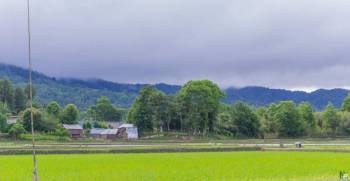 5D/4N
5D/4N
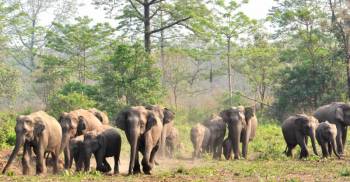 4D/3N
4D/3N
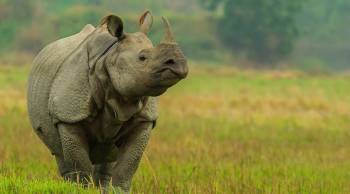 4D/3N
4D/3N
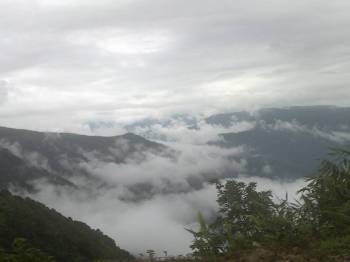 4D/3N
4D/3N
 8D/7N
8D/7N
Exotic Cuisines and Northeast India Blis..
Guwahati - Shillong - Kaziranga - Kohima - Mawlynnong
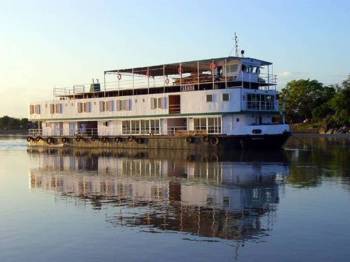 8D/7N
8D/7N
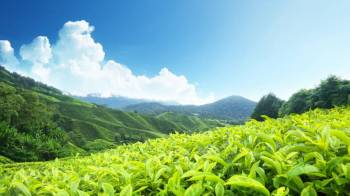 6D/5N
6D/5N
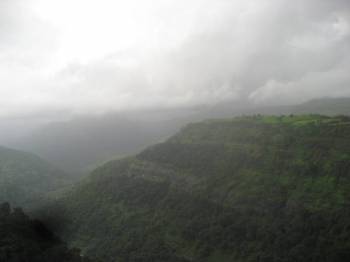 8D/7N
8D/7N
Monsoons in the Abode of Clouds Tour Pac..
Guwahati - Shillong - Cherrapunji - Mawlynnong
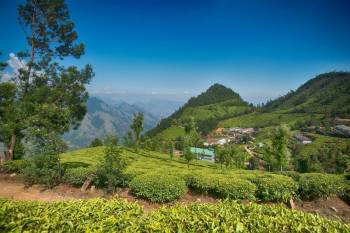 9D/8N
9D/8N
Tea Plantation Stays in Assam Tour Package
Dibrugarh - Guwahati - Sivsagar - Mancotta - Gatoonga - Adabarie
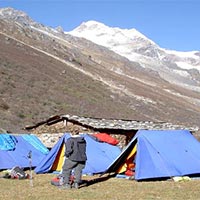 32D/31N
32D/31N
 32D/31N
32D/31N
The Tribal Frontiers of Northeast India ..
Guwahati - Shillong - Kaziranga - Nongriat - Nongriat
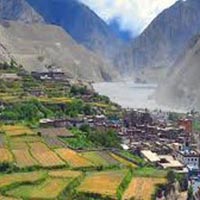 32D/31N
32D/31N
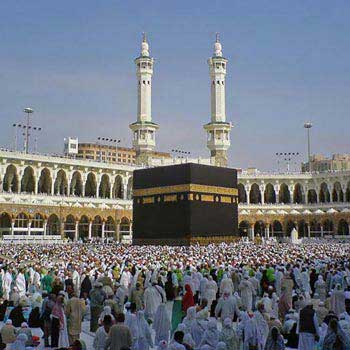 32D/31N
32D/31N
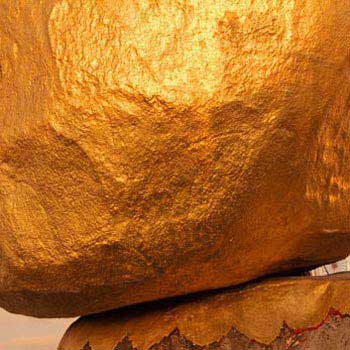 32D/31N
32D/31N
Biking Burma, Vietnam with Trekking Thai..
Yangon - Bangkok - Krabi - Siem Reap - Ho Chi Minh City - Dalat - Nha Trang - Bagan..
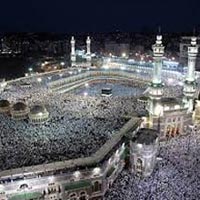 32D/31N
32D/31N
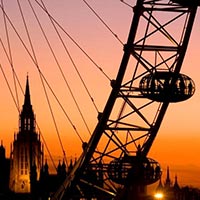 32D/31N
32D/31N
Europe In Depth With Extended Stay In Lo..
London - Brussels - Amsterdam - Heidelberg - Lucerne - Vaduz - Innsbruck - Belgium ..
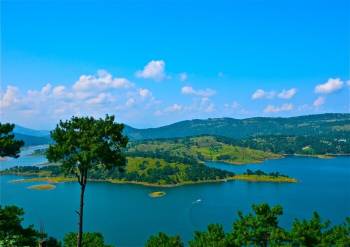 6D/5N
6D/5N
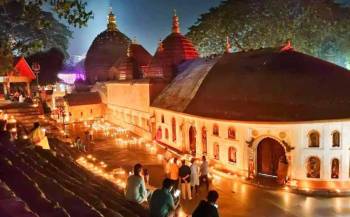 8D/7N
8D/7N
8 Days Guwahati - Kaziranga - Shillong -..
Guwahati - Shillong - Kaziranga - Dawki
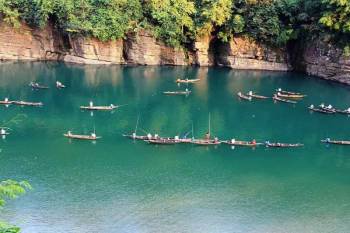 8D/7N
8D/7N
8Days Kaziranga - Shillong - Cherrapunji..
Guwahati - Shillong - Cherrapunji - Kaziranga
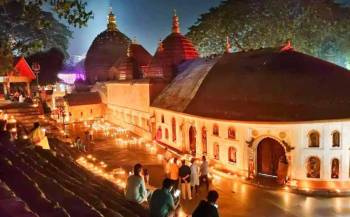 8D/7N
8D/7N
Shillong-Dawki-Kaziranga-Guwahati Tour P..
Guwahati - Shillong - Kaziranga - Dawki
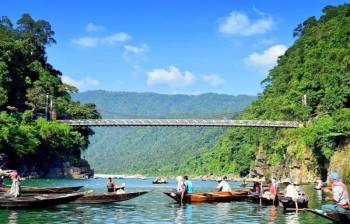 8D/7N
8D/7N
7 Night And 8 Days Assam Tour Package - 2
Guwahati - Shillong - Kaziranga - Dawki
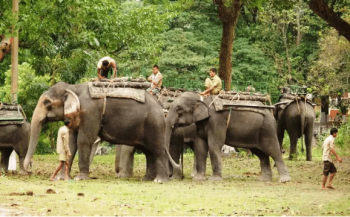 8D/7N
8D/7N
7 Night And 8 Days Assam Tour Package - 1
Shillong - Cherrapunji - Kaziranga - Guwahati
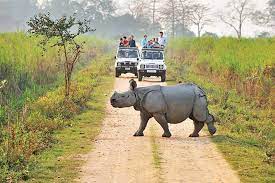 8D/7N
8D/7N
7 Night 8 Days Guwahati - Shillong - Che..
Guwahati - Shillong - Cherrapunji - Kaziranga
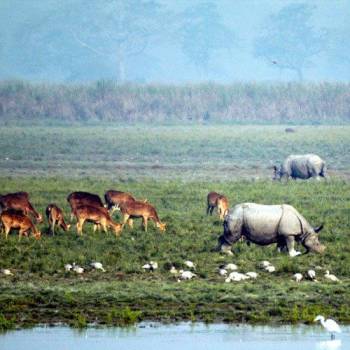 8D/7N
8D/7N
7 Night Kaziranga - Shillong - Cherrapun..
Guwahati - Shillong - Cherrapunji - Kaziranga
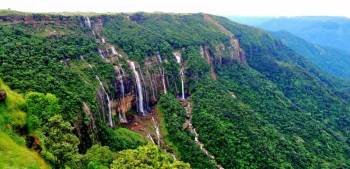 8D/7N
8D/7N
Assam Tour Package 7 Night - 8 Days
Guwahati - Shillong - Cherrapunji - Kaziranga